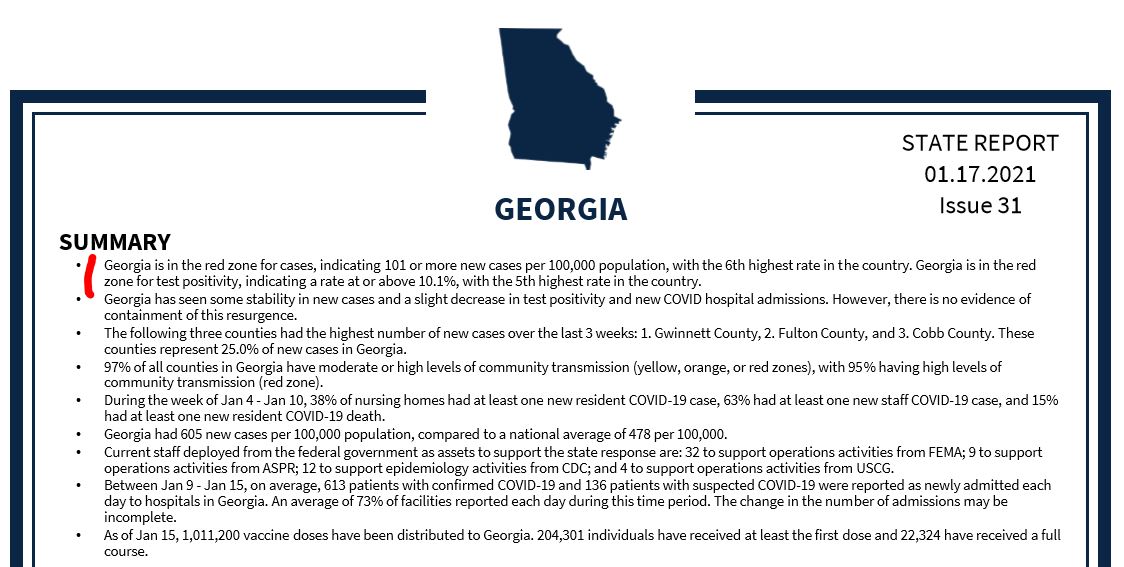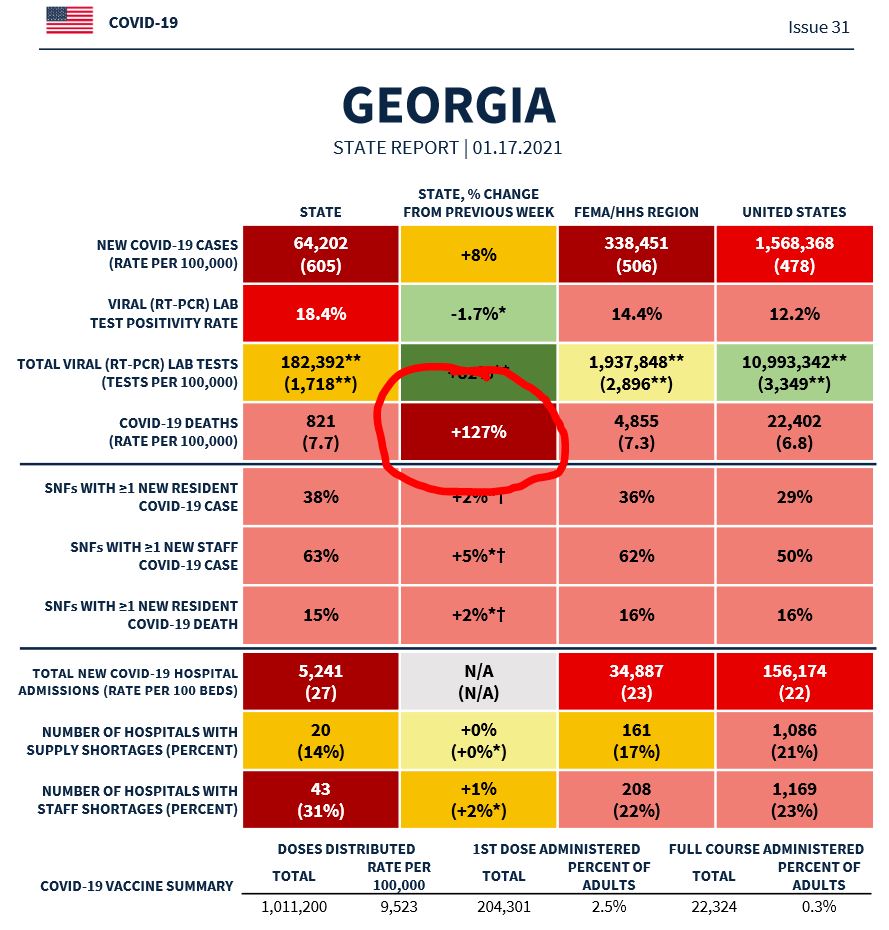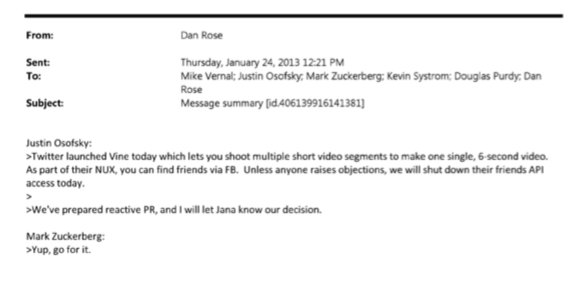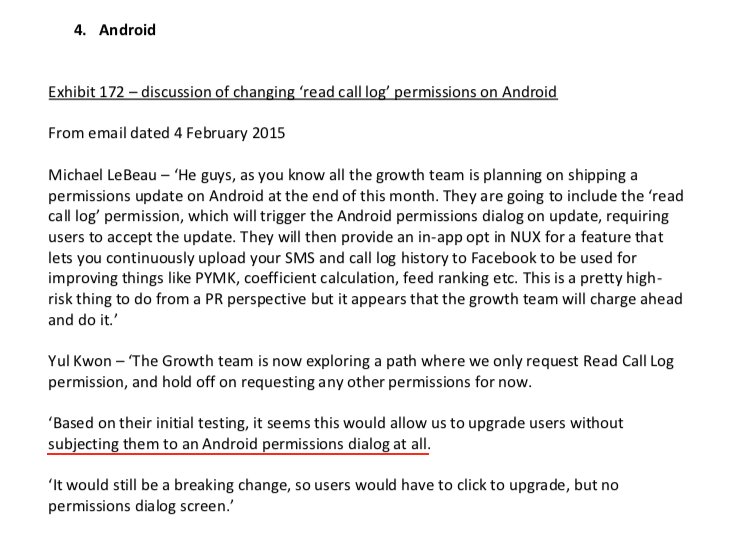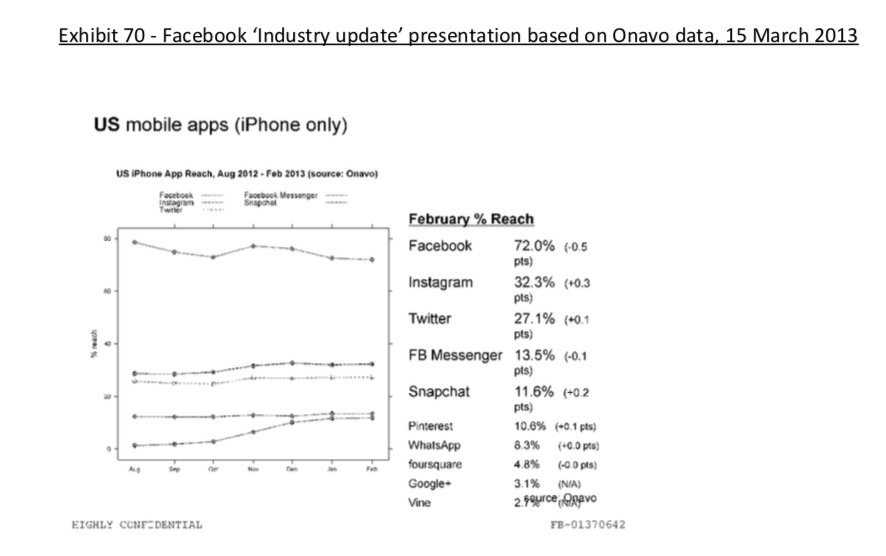- Georgia is back to 6th in the country for new cases in the week leading up to 1.17 (not long ago we were doing better than nearly every other state)
- 5th in the country for test positivity
- 97 percent of all counties in the state in the "red zone"
2/n
It's the recommendations that are the most interesting (we know things are bad here).
"Mask mandates work," it reads. "Any indoor space where masks cannot be worn ... must be substantially curtailed or closed."
This rec has been here before, but not so bluntly.
3/n
3/n
"This virus can be mitigated and community spread can be curtailed, but action needs to be taken before an increase in hospitalizations is seen," it continues. " it needs to be more comprehensive and longer than the summer mitigation actions."
4/n
Then, finally: "Georgia is still experiencing widespread community spread and needs to accelerate mitigation to prevent ongoing fatalities."
This final one is a message that we've seen before, too, though again, not in so direct terms.
5/n
In Georgia, state officials have declined to put new orders in place to slow the spread for months, especially in advance of any rise in hospitalizations. Heck, we reached levels never seen before and all that was done was to ask people to follow public health rules.
6/n
I get how there is only so much you can order people to do when it comes to public health, you need people to have buy in.
But these recommendations aren't coming from some group of amateurs, regardless of what you thought of the previous administration.
7/n
And the politics of it? Well, that's beyond me. It would seem that state leaders would have some political cover to take recommendations from people in their same party, but that's not my area.
8/n
What that portends for recommendations coming from the new administration, not of the same political persuasion, I can only imagine.
And we've seen in the recent weeks why all this matters: people are dying.
821 in the week leading up to 1.17 per the report.
9/n
Those are 821 Georgians with families and people who loved them. There is a solid chance you know someone who's died. I know I do.
I spend so much time looking at numbers, that its easy to forget that each one has a name and a story.
10/n
Reporters have asked state leaders about the recommendations in these reports SO MANY TIMES, but they don't have to hear about them from us. Leaders in Georgia and all the other states have been getting these directly for months.
11/n
It's not clear if the Biden administration will continue to issue them, but I hope they do, even better if they're widely shared.
We're far from out of the woods, and they've been good signposts for where we actually are in this whole mess of a situation.
12/end
